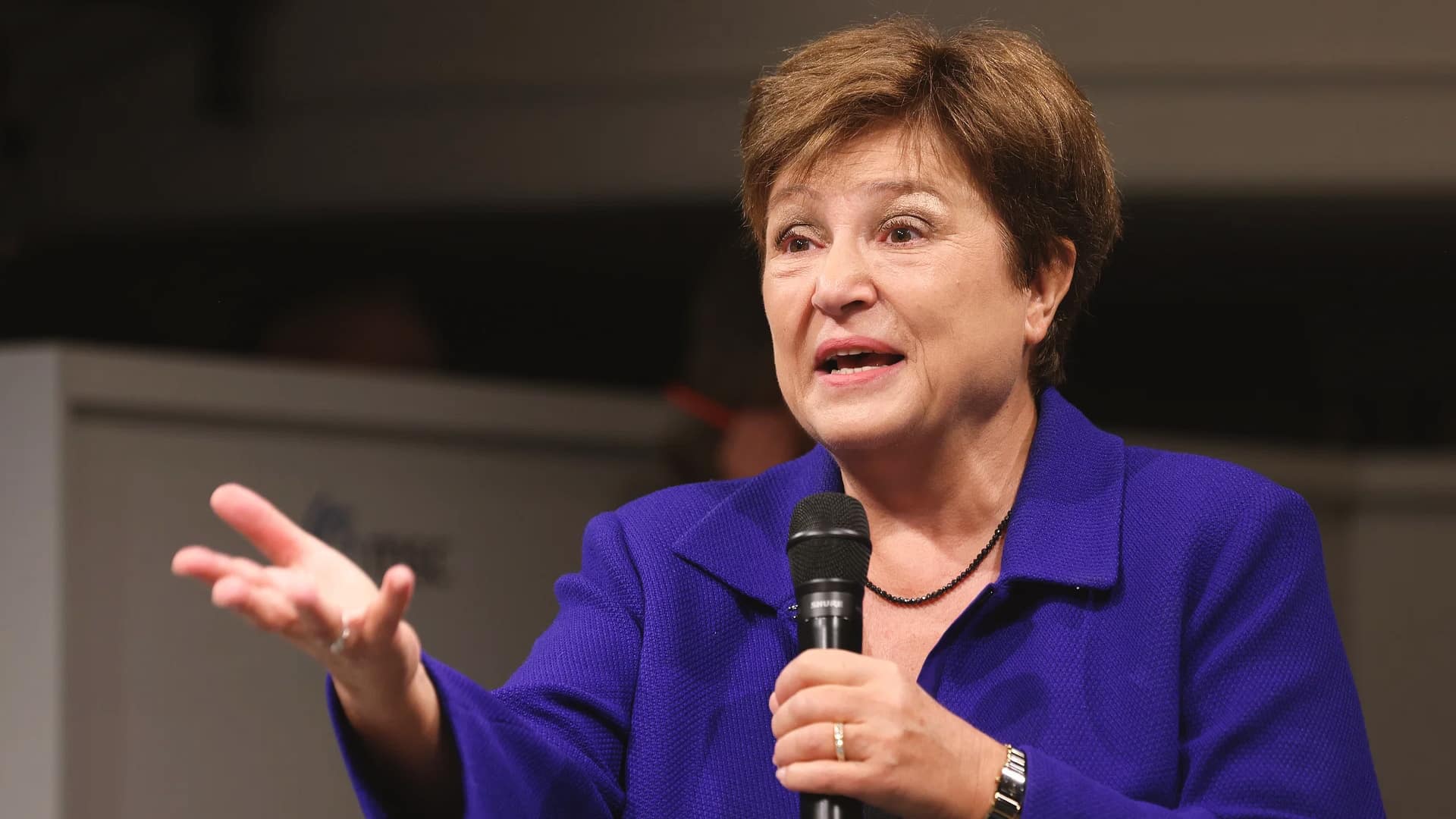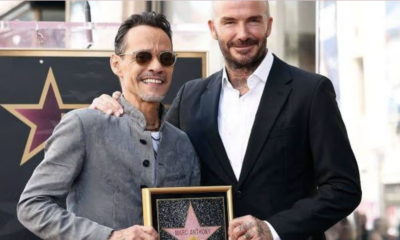Business
India can achieve its goal of being carbon neutral much before its target of 2070: IMF MD
India, which has taken it upon itself to be carbon neutral by 2070, could achieve this ambitious goal even earlier, International Monetary Fund Managing Director Kristalina Georgieva has said.
Georgieva added that it is so very important that a large country like India plays a leading role in the fight against climate change. She noted that what India has done is “quite admirable” because it is a country that has nearly 1.4 billion people that need access to development opportunities. And therefore, the pressure to expand the use of resources is exceptionally high. Yet India is managing to put in place very ambitious objectives: reduce the emissions intensity of its GDP by 45 per cent by the year 2030, from 2005 level, Georgieva told PTI in an interview as she applauded New Delhi for its programme of using solar as a main source of energy and taking it to the global level through the International Solar Alliance.
Also read: CX+ Summit 2023: Uplifting Customer Experience by Leveraging Data and Technology
“And more recently thinking more seriously about innovation, for example, the applicability of green hydrogen and making the public investment to accelerate movement in this direction,” she said. At the 26th session of the Conference of the Parties (COP26) of the UNFCCC in November 2021, Prime Minister Narendra Modi announced that India will achieve the target of net zero emissions by 2070. Net zero means achieving a balance between the greenhouse gases put into the atmosphere and those taken out. This may be achieved through various methods, including restoring forests or direct air capture and storage (DACS) technology.
“India has taken it upon itself to be carbon neutral by 2070. I actually very strongly believe that with the ambition that the country now demonstrates, they could take additional actions that could help in carbon neutrality being achieved even earlier,” Georgieva said in response to a question. At the same time, she felt that there is a lot of expectation for India to be that leading force and of course, the big issue for India remains phasing out the use of coal in a country where coal is so important. “I’m confident that we would see India driving transformation also because of the full realisation that the countries highly vulnerable to climate shocks, we have seen it this year, we have seen it in previous years, and therefore, it is so motivated to make sure that we as the World Community act decisively and early to prevent these shocks from becoming even worse,” she said.
“One thing that I want to add is Prime Minister Modi is the one who very much presses for the importance of individual choices, creating a culture in society that is one of guarding our resources, not using more than we need. And by doing so, by being protective of our nature, also being a good steward for our planet, for the future generations,” Georgieva said as she praised the prime minister for his leading role in the fight against climate change. India last year updated Nationally Determined Contributions (NDCs) – national plans to achieve the Paris Agreement goals of limiting warming to 1.5 degree Celsius, emphasising that it is a step forward towards its long-term goal of reaching net-zero by 2070.
The country also submitted to the UNFCCC last year its long-term plan to achieve the net-zero target by 2070. At COP27 held in Egypt last year, Environment Minister Bhupender Yadav said the historical cumulative emissions of countries should be the measure of their responsibility to raise ambitions and that some developed nations “must reach net zero even before 2030” as their goal to become carbon neutral by 2050 is “not enough at all”. India has maintained that rich nations, responsible for a large share of historical emissions and global warming, deliver technology and finance to help the developing and poor countries fight climate change.
Separately in a blog, Georgieva wrote that at a time of heightened uncertainties for the global economy, India’s strong performance remains a “bright spot”. “This will be another challenging year. But it could represent a turning point with inflation declining and growth bottoming out. Indeed, while our latest projections show global growth slowing to 2.9 per cent this year, we anticipate a modest rebound to 3.1 per cent in 2024,” she said. “We see emerging markets and developing economies providing much of the momentum. We expect them to account for about four-fifths of global growth this year, with India alone expected to contribute more than 15 per cent,” she said.
But beyond its role as a global growth engine, India is uniquely positioned to bring countries together, she added. In a world facing multiple challenges and rising geopolitical tensions, this leadership is critical – and beautifully captured in the theme of India’s G20 presidency: One Earth, One Family, One Future, she said. Highlighting the importance of the G20 Finance Ministers and Central Bank Governors meeting in Bengaluru this week, she said, “we will meet in-person for the first time – and pave the way for creditors, both public and private, and debtor countries to work together, assess the existing shortcomings and best ways to tackle them.”
Describing India’s Unified Payments Interface as an excellent example of technology boosting financial inclusion, Georgieva said that last month alone, this layer of India’s digital public infrastructure processed over 8 billion transactions. And that system allows 400 million people in rural areas to participate with legacy push-button’ cellphones, she added. “This is just the beginning. Most IMF member countries are now actively evaluating central bank digital currencies (CBDCs) that could bring substantial benefits, such as more resilient payments in disaster-prone countries and greater financial inclusion,” she said.
Georgieva said that India has conducted an in-depth assessment of CBDCs, which could inform similar studies elsewhere, accelerating digital progress worldwide. “Yet any new financial technology also comes with risks. The recent collapse of some prominent crypto exchanges has intensified concerns about market integrity and user protection. That is why we need the right policies,” she said. “To achieve the goals of One Earth, One Family, One Future’, we need to find common ground even as geopolitical tensions are rising. And we need to steer clear of zero-sum policies that would only leave the world poorer and less secure,” she said.
Georgieva quoted Nobel Laureate Rabindranath Tagore as saying that “You can’t cross the sea merely by standing and staring at the water.” “For G20 policymakers, this means having the courage to take the right actions, steering the ship we are all on to safe harbour,” she added.










































Pingback: Zomato launches home-style meal service 'Everyday'